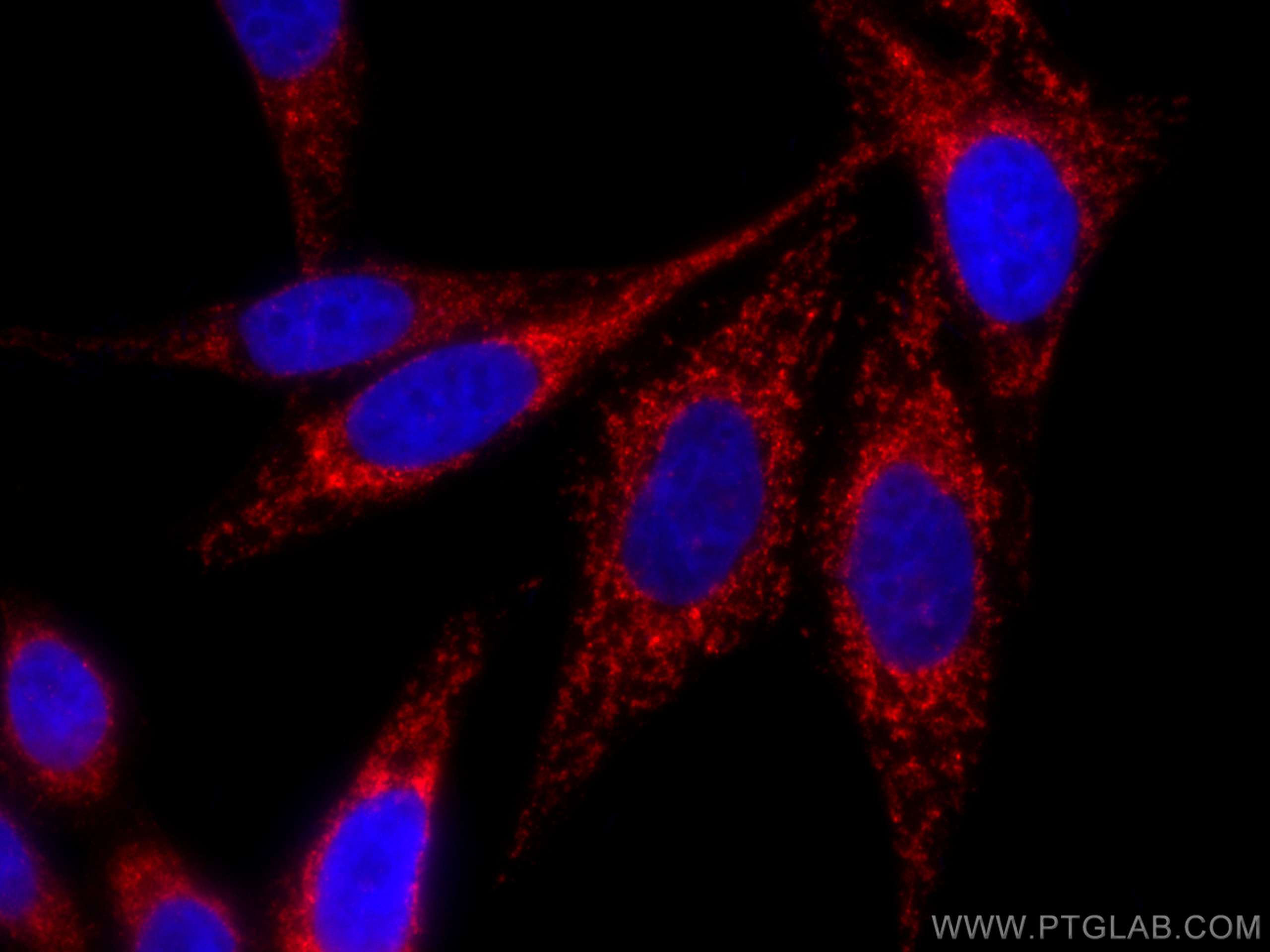- Featured Product
- KD/KO Validated
CoraLite®594-conjugated MFF Polyclonal antibody
MFF Polyclonal Antibody for IF/ICC
Host / Isotype
Rabbit / IgG
Reactivity
human, mouse, rat
Applications
IF/ICC
Conjugate
CoraLite®594 Fluorescent Dye
验证数据展示
经过测试的应用
| Positive IF detected in | HepG2 cells |
For other applications, we recommend the unconjugated version of this antibody, 17090-1-AP
推荐稀释比
| Application | Dilution |
|---|---|
| Immunofluorescence (IF) | IF : 1:50-1:500 |
| It is recommended that this reagent should be titrated in each testing system to obtain optimal results. | |
| Sample-dependent, Check data in validation data gallery. | |
产品信息
CL594-17090 targets MFF in IF applications and shows reactivity with human, mouse, rat samples.
| Tested Applications | IF/ICC |
| Tested Reactivity | human, mouse, rat |
| Immunogen | MFF fusion protein Ag9990 种属同源性预测 |
| Host / Isotype | Rabbit / IgG |
| Class | Polyclonal |
| Type | Antibody |
| Full Name | mitochondrial fission factor |
| Synonyms | AD033, C2orf33, DKFZp666J168, GL004, MFF, mitochondrial fission factor |
| Calculated Molecular Weight | 38 kDa |
| Observed Molecular Weight | 26-29 kDa, 35-38 kDa |
| GenBank Accession Number | BC000797 |
| Gene Symbol | MFF |
| Gene ID (NCBI) | 56947 |
| RRID | AB_2919839 |
| Conjugate | CoraLite®594 Fluorescent Dye |
| Excitation/Emission Maxima Wavelengths | 588 nm / 604 nm |
| Form | Liquid |
| Purification Method | Antigen affinity purification |
| UNIPROT ID | Q9GZY8 |
| Storage Buffer | PBS with 50% Glycerol, 0.05% Proclin300, 0.5% BSA, pH 7.3. |
| Storage Conditions | Store at -20°C. Avoid exposure to light. Aliquoting is unnecessary for -20oC storage. |
背景介绍
MFF (mitochondrial fission factor) is a mitochondrial outer membrane protein that is involved in mitochondrial localization of Drp1 and mitochondrial fission. Multiple isoforms of MFF exist due to the alternative splicing. This antibody recognizes the endogenous MFF protein around 26-29 kDa and 35-38 kDa.
实验方案
| Product Specific Protocols | |
|---|---|
| IF protocol for CL594 MFF antibody CL594-17090 | Download protocol |
| Standard Protocols | |
|---|---|
| Click here to view our Standard Protocols |
